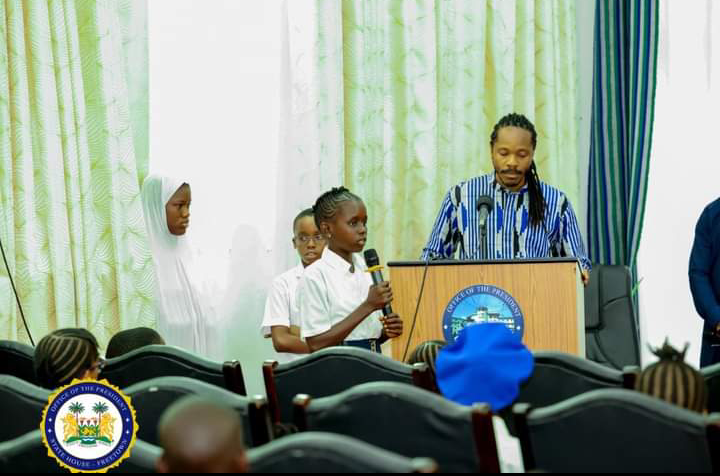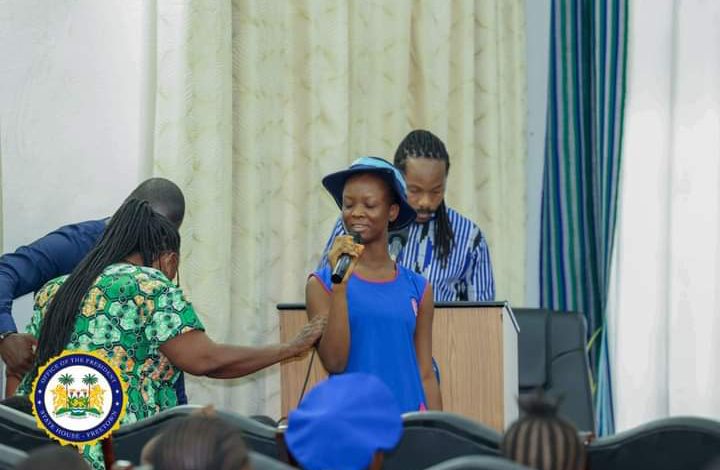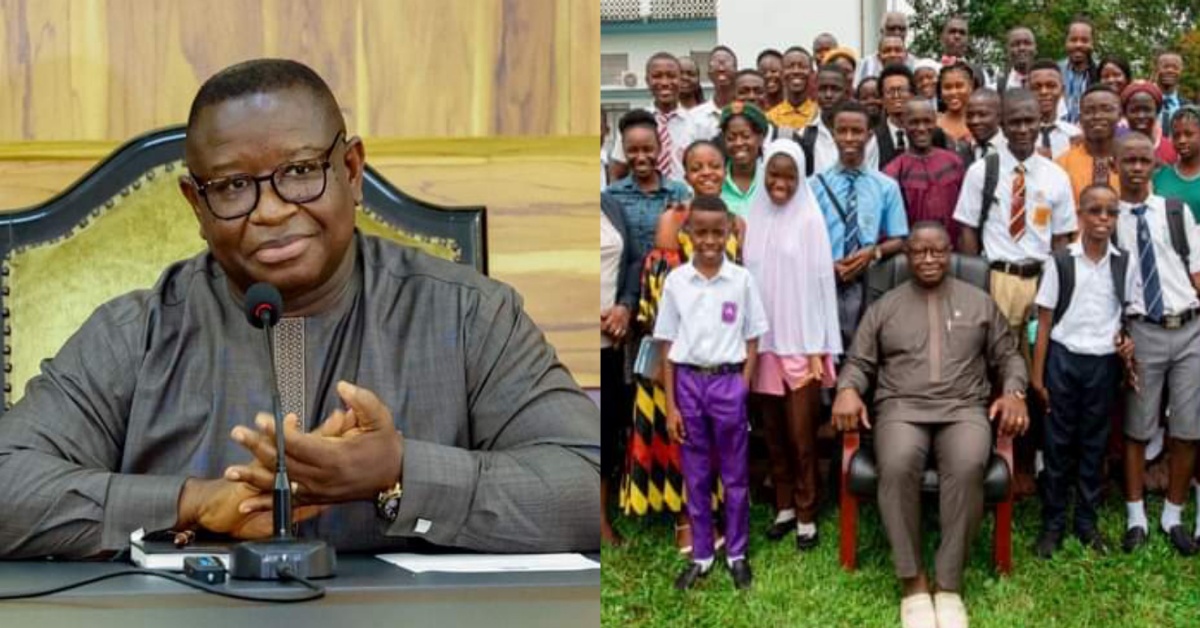On wednesday 7 September 2022, His Excellency President Dr .Julius Maada Bio has hosted 60 children from pre-primary, primary, senior secondary, special-needs schools as well as adult literacy learners and the district youth advisory group in the Basic Education sector to get first-hand information on the learning crisis in the country.
While welcoming them to State House and thanking them for responding to his call, the President said: “The most important people we have today as our guests are the pupils and the students. Today, the conversation is going to be with you. We want to make important decisions around the world concerning education.
“For me, today, education is learning from you based on the fact that when I am here, I don’t know what is happening down there. That is why I have called all of you from different levels in various schools so that I can understand the barriers to education. There is a problem with education around the world and to end our ignorance and be able to provide better education, we need to hear from you.
“There is a crisis of learning around the world, and we are here to discuss how we, as a nation, can best prepare our children to be useful to take positions capably and handle the affairs of their communities and the nation. For you to be able to do that, you must have the best education. For you to be able to sit in this capacity and many other capacities and make an impact in the world, by moving things successfully, you have to go to school.”
President Bio said, as a government, they believed that even though the children were still in early learning schools, they were aware of the negative impacts on education that the government, ministers, parents, teachers, and other elderly people might not be aware of.
“I am going to be chairing a meeting at the highest level in the world with the United Nations Secretary-General and to deliberate on education. But I cannot go to that meeting without talking to you because I will only be representing my voice if I do so. I have, therefore, called this meeting, so you can tell me what is wrong and I will take all of that to the global education meetings,” he informed.
ManawaJayah, from the Nyapui Senior Secondary School of Excellence in Kenema, recommended that the government embark on digitalization education by introducing information, communication and, technology (ICT) to all secondary schools in the country.
Joshua Koroma, 7, of Blessing Primary School, said: “Teachers don’t give too much attention to students in the classroom. They don’t encourage children to learn well because the only key to education is education. Teachers should encourage us. Children should be cared for. All over the world, children too need attention. Just like all other people, children too need attention,” he said.

National President, Children’s Forum Network, Mamoud Barrie, said: “Statistics have shown that there is an increase of 2.1 percent in the population of Sierra Leone every year, and within 33 years, the country’s population will double. Considering the impact on the environment, in terms of education, the introduction of free quality education has increased not only enrollment but also school attendance. Yet, schools are challenged with infrastructure, which requires attention”.
Saffiatu Comfort Turay from Methodist Girls’ Secondary School recommended that the government return all-girls schools to a single shift to ensure girls spend more time on their studies after school. She said the issue of water, sanitation a,nd hygiene (WASH) was another factor that had affected girls in school, pointing out that most of the existing facilities were not healthy or conducive for them. So, she recommended that government could bring more school buses and also improve the conditions of their teachers’ services.

Head of the children’s section, Sierra Leone Library Board, Donsalay Davies, said: “The library now serves as a focal point in the education system in Sierra Leone. When the home fails, when the school is lagging, the library steps up to fill in the gap. With all our engagement with schools, we notice that many schoolchildren can’t read. So, we let the librarian step in to teach them reading all over again. We teach them early literacy, and these children are already in school learning.
“So, you need to pay more attention to the early literacy section of our education system because that’s where learning and reading start. We have noticed that book donations from organizations not tailored to our needs because we are not consulted during the selection process. We need to be consulted because we know our children, their needs, and their problems”.











